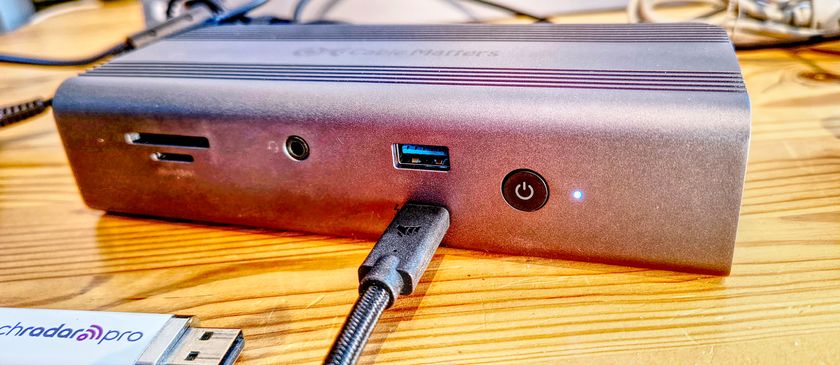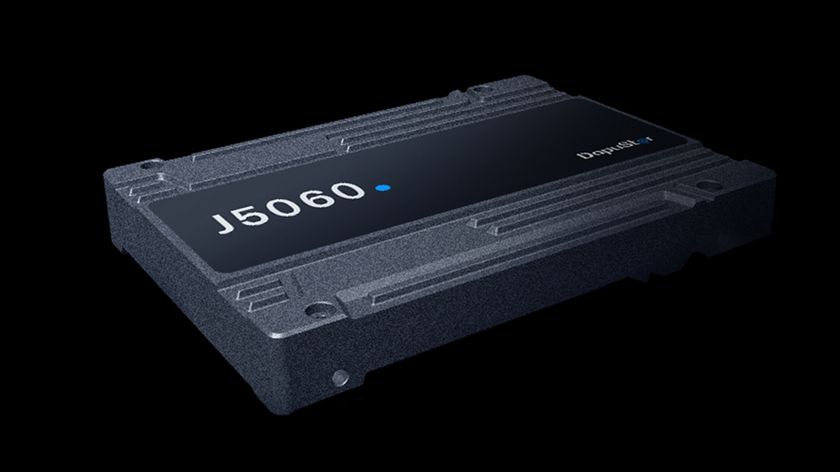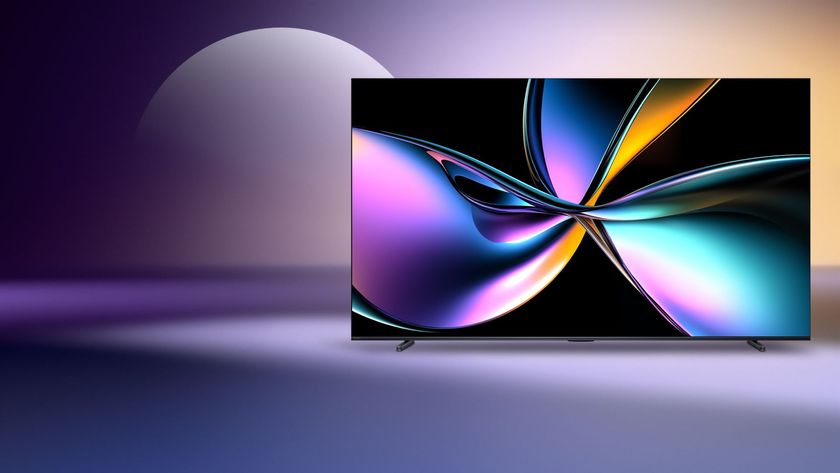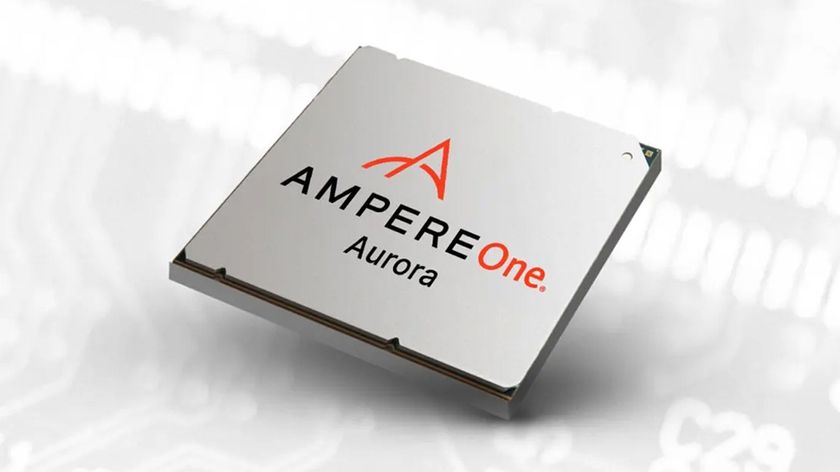Surface Duo is Microsoft's weapon to destroy Apple in the enterprise world
It's also Microsoft’s first non-Windows end-user product
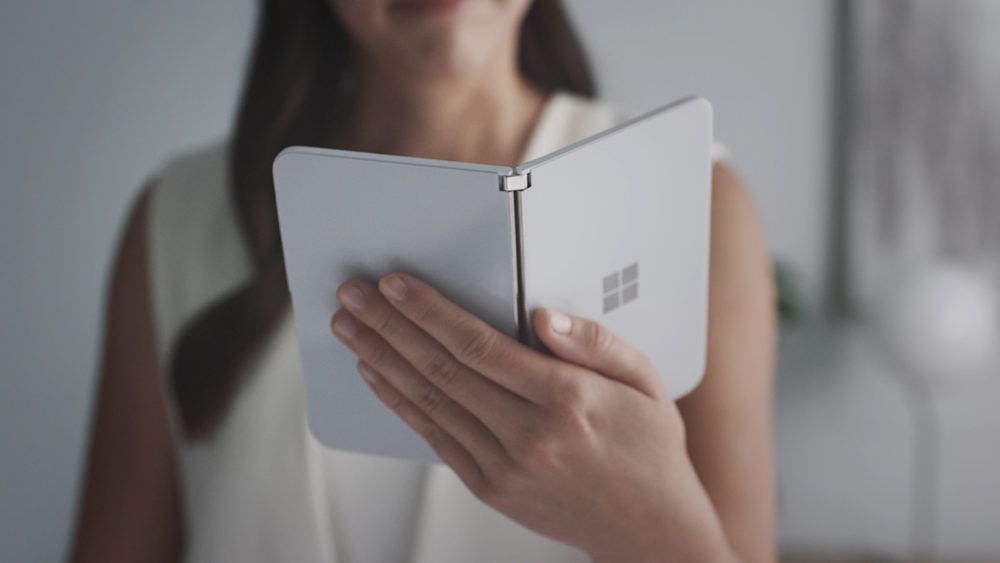
The past few years have been eventful for Microsoft. From being the first tech company to be consistently valued above the $1 trillion mark to embracing open source, Linux and rival platforms like never before, the firm has turned its mid-life crisis into a revolution of sorts under the leadership of Satya Nadella.
But the launch yesterday of the Surface Duo, an Android-powered device, nudges that to another level. This is the first mass market product from Microsoft that runs on an operating system other than Windows.
Microsoft cosying up with Google on mobile devices to take on Apple was something I alluded to back in 2014 when the Redmond-based company was apparently considering encouraging phone manufacturers to offer dual-boot operating systems on smartphones.
Where's Bing?
Duo goes further by including Google Web Services (YouTube, Google Play and others) and based on its launch video, there’s even Google Maps and Google Search, rather than their Bing equivalents.
All this comes on top of a heavily customised version of Android - which is essentially Linux and Open Source. Don’t worry though, there’s plenty of Microsoft Apps that will likely come as default. At last count, there’s 79 of them, including a fair amount of business ones like Teams, Power BI, Azure and more.
And make no mistake, Duo is Microsoft’s first salvo at Apple as it prepares to battle its archrival for supremacy in the mobile enterprise market. Piggybacking on Google’s Android is an unorthodox but pragmatic approach, very much in line with a Satya-esque philosophy.
Android annihilated in enterprise
Expect Microsoft to aggressively court enterprise accounts and leverage its extensive partner programme - and Google - to take on Apple in what looks like the mother of all Battle Royale. Redmond has lost the consumer market and seems decided to fight and win the business market.
Are you a pro? Subscribe to our newsletter
Sign up to the TechRadar Pro newsletter to get all the top news, opinion, features and guidance your business needs to succeed!
Various reports highlight the hegemony of Apple’s iOS in the enterprise where the iPad and the iPhone have cemented its place as the number one purveyor of mobile devices to businesses worldwide, a potential catalyst in Google’s decision in June 2019 to stop producing its own Pixel tablet range.
A 2018 report by enterprise file sharing specialist Egnyte showed that most mobile collaboration happened on iOS; almost 4x more than on other OSes, with a 60:40 advantage to the iPhone versus the iPad.
More recently, a 2019 Piper Jaffray research piece highlighted the fact that most CIOs (Chief Information Officers) prefer to spend more on Apple mobile products compared to any other operating systems and this has been increasing over the years, first at the expense of BlackBerry and more recently, Android.
So while Android has the upper hand in the consumer market, roles are reversed in the more lucrative B2B market where Apple rules supreme.
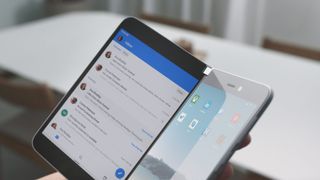
What to expect?
Microsoft has long been on a crusade to conquer hearts and minds of hardware aficionados; the Surface brand did so with a fair amount of success after some very, very challenging early years (hello Surface RT) but it didn’t give up despite widespread criticism.
Since then the range has expanded to include a bigger tablet, a 2-in-1, an all-in-one computer, a laptop range, an interactive display and now, a phone; that’s almost a mirror of Apple’s range bar the Mac Mini and Mac Pro and was down to the original target audience: the Creatives.
The enterprise market is more fragmented but Microsoft has already plenty of touch points via other services that it offers either through partners or directly. The Surface phone is likely to spearhead a renaissance of Microsoft as a smartphone vendor laser focused on businesses by providing a compelling alternative to BlackBerry smartphones, now owned by Chinese-based TCL.
It is no surprise that the video demo-ing the Duo used sequences that made sense to businesses (taking a conference call, scheduling a business lunch, replying to emails and then chilling out with a game).
After all, as Microsoft reiterated in the blog announcing a slew of new products, Surface is built for Business with tighter integration with Microsoft’s ecosystem and unlike say the Samsung Galaxy S10 which has consumers in mind first.
From then, and depending on how well the product is received, there’s a chance that Microsoft key business partners - Dell, Lenovo, HP, Acer and others - might roll out their own as they did after Microsoft set the benchmark with the Surface brand.

Désiré has been musing and writing about technology during a career spanning four decades. He dabbled in website builders and web hosting when DHTML and frames were in vogue and started narrating about the impact of technology on society just before the start of the Y2K hysteria at the turn of the last millennium.
